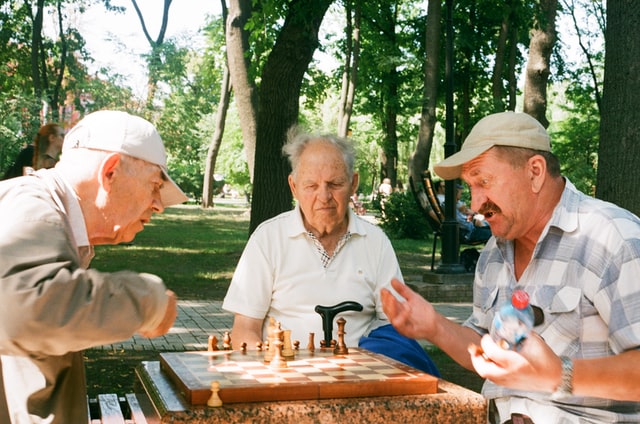It has long been assumed that a person’s general cognitive ability declines as they grow older. But new research challenges this widely-held assumption, showing that some brain functions may actually get better with aging.
The study, published in Nature Human Behaviour, found that older adults were more efficient in shifting their attention to a certain location (orienting), as well as inhibiting distractions and focusing on the task at hand (executive control) than younger adults.
João Veríssimo, the study’s first author and assistant professor at the University of Lisbon in Portugal, said executive control and orienting skills are intricately involved in daily tasks, whether it be interacting with others or traveling from one place to another. These brain functions support higher-level cognitive abilities, which range from navigation and language, to reasoning and decision-making. With lifelong practice and experience, people’s executive control and orienting skills could improve as they age, the team hypothesized.
“If we’re right and this is about experience and practice, then this means that general mental activity and engagement can perhaps counter the effects of aging,” Veríssimo told Being Patient. “This is very optimistic for everyone.”
For the study, Veríssimo and colleagues, including Michael Ullman, professor of neuroscience at Georgetown University, analyzed data of more than 700 healthy people in the Social Environment and Biomarkers of Aging Study. The participants, aged 58 to 98, took computer-based tests that assessed their executive control, orienting and alerting, brain networks that work in tandem.
Want to learn more about clinical trials
for Alzheimer’s and dementia?
Check out the Lilly Trial Guide.
For instance, alerting prepares a driver to respond to incoming information such as a stop sign or an intersection, Veríssimo explained. Orienting allows the driver to shift their attention to an approaching pedestrian, anticipating where the person is headed. With flashy billboards or neon lights around the street, executive control enables the driver to ignore these distractions and to focus on the road.
The researchers observed that alerting abilities declined with age, but older participants’ executive control and orienting skills were more efficient than younger adults.
In particular, orienting skills improved about four to five times from middle age to older adulthood, whereas executive control increased up to the mid-to-late 70s and declined afterwards. But improvement in executive control was large enough such that the oldest adults still had similar efficiencies in this brain function as the youngest participants.
Unlike the state of alertness, the team suggested that people can become more proficient at orienting abilities and executive control with practice. So, the older they get, the more experience they have with these skills.
“We think that orienting and inhibitory abilities are skills that you can get better at. You keep on practicing [them],” Ullman, the study’s senior author, told Being Patient. “But alerting is this fundamental state of being … that we think may not be susceptible to practice [and] experience.”
The study may open doors to interventions for aging and even age-related disorders, Veríssimo added. While there is some evidence suggesting that targeted practice with activities, like learning a language, playing an instrument, or brain training via computerized tasks, is associated with improved cognitive abilities, both Veríssimo and Ullman said further research is needed to study the effects of these tasks.
Nonetheless, the recent study underscores that aging isn’t synonymous with decline in brain functions across the board, highlighting the multifaceted changes in cognitive abilities as people get older.



